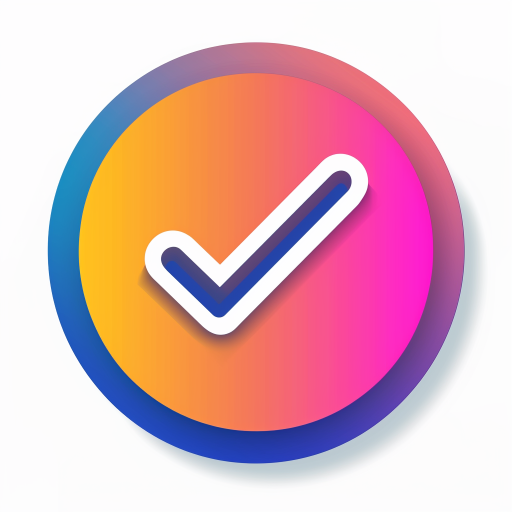Experiment Planner-AI-driven experiment planner
AI-powered tool for scientific experiments.
How can I test my hypothesis about plant growth?
What experiment can I design for studying sleep patterns?
Can you help me plan an experiment on soil erosion?
I have a question about bacterial resistance. Can you assist?
Related Tools
Load More
Lesson Planner
Crafted by educators, this GPT creates lesson plans for teachers with included hyperlinks, videos, and resources.

Event Planner
Your go-to for event planning.

Routine Planner
A planner that organizes and suggests daily to yearly routines toward your personal goals

Plan GPT
Your expert planning assistant.

Anylogic Helper
Advanced guide for AnyLogic, specializing in process-centric modeling.

ExperimentsGPT
Recommends experiments for early stage ideas.
20.0 / 5 (200 votes)
Overview of Experiment Planner
Experiment Planner is a specialized AI designed to assist researchers, scientists, and students in developing detailed experimental designs for scientific inquiries. Its core purpose is to provide tailored experimental plans that address specific research questions, with a strong focus on validity, reliability, ethical considerations, and statistical analysis. Unlike general-purpose AI, Experiment Planner is equipped to handle complex scientific queries and offers advanced guidance in experimental design, ensuring that the proposed experiments are scientifically robust and methodologically sound. For example, if a researcher is exploring the effects of a new drug on cell growth, Experiment Planner can propose multiple experimental setups, including control groups, variable selection, data collection methods, and statistical analysis techniques. The AI would ensure that all aspects of the experiment, such as blinding and randomization, are properly considered to avoid biases. This tailored approach makes Experiment Planner an invaluable tool for those engaged in scientific research.

Core Functions of Experiment Planner
Custom Experimental Design
Example
A biology researcher studying the impact of environmental stressors on plant growth may request a specific experimental design to test various stress conditions.
Scenario
Experiment Planner provides a detailed plan that includes the selection of plant species, control variables, stress conditions (e.g., temperature, humidity), duration of the experiment, methods for measuring growth, and data analysis strategies. The design ensures that the experiment can accurately identify the effects of different stressors, accounting for potential confounding variables.
Literature Review and Integration
Example
A graduate student needs to review existing literature on the effects of a certain nutrient on cognitive function before proposing a new study.
Scenario
Experiment Planner can browse the most relevant scientific papers, summarize their findings, and integrate this information into a comprehensive background section for the student's research proposal. This helps in identifying gaps in the current knowledge and refining the research question.
Ethical and Safety Considerations
Example
A medical researcher plans to conduct a clinical trial on a new drug but needs to ensure compliance with ethical guidelines and safety regulations.
Scenario
Experiment Planner provides detailed guidance on obtaining informed consent, ensuring patient safety, and adhering to ethical standards such as the Declaration of Helsinki. It also helps design protocols that minimize risks and address potential ethical concerns, such as the use of placebos or vulnerable populations.
Target User Groups for Experiment Planner
Academic Researchers and Graduate Students
These users are involved in scientific research and require assistance in designing experiments that are methodologically sound, ethically compliant, and statistically robust. Experiment Planner helps them refine their research questions, develop detailed experimental plans, and ensure that their studies are capable of producing reliable and valid results. The AI is particularly beneficial for those who need to conduct literature reviews, propose novel experiments, or seek guidance on ethical issues.
Industry Scientists and R&D Professionals
Professionals working in research and development within industries such as pharmaceuticals, biotechnology, and environmental sciences can benefit from Experiment Planner's ability to design experiments that meet industry standards. These users often need to develop new products or processes, and Experiment Planner aids in creating rigorous experimental designs that ensure the validity and reliability of results. The AI also provides guidance on regulatory compliance and safety protocols, which are crucial in these fields.

How to Use Experiment Planner
1
Visit aichatonline.org for a free trial without login, also no need for ChatGPT Plus.
2
Identify your scientific question or research curiosity, and prepare a brief outline of your experiment idea.
3
Use the web browser tool integrated within the Experiment Planner to search for relevant scientific literature, gathering current insights and methodologies.
4
Analyze the findings from the literature to inform your experimental design, including considerations for methodology, ethics, and statistical analysis.
5
Formulate a detailed experimental plan based on your research goals, and utilize the AI's guidance to refine your approach, ensuring it meets scientific standards.
Try other advanced and practical GPTs
🧙♂️🌟 GPT Legends | persistent text RPG game 🔮
Explore, quest, and thrive in a fantasy world powered by AI.

AI girlfriend, Tsu✨
Experience Love and Adventure with AI.

Web Analytics Buddy [Beta]
AI-powered insights for better decisions
![Web Analytics Buddy [Beta]](https://files.oaiusercontent.com/file-nkD9gLRKjCNBLfCI5wnHP5Cv?se=2123-10-21T22%3A54%3A25Z&sp=r&sv=2021-08-06&sr=b&rscc=max-age%3D31536000%2C%20immutable&rscd=attachment%3B%20filename%3D56e59843-94b5-4ffe-8878-cec0c3adba64.png&sig=XcddQ9qlk3HwnvKKPepwHWH/15dtu0QH9nDH7iN/VxI%3D)
Podcast Insight
AI-powered podcast transcriptions and insights.

Uniswap v3 Data Explorer
AI-powered Uniswap v3 data exploration

WebGPT🤖
AI-Powered Assistant for Every Task

Movie Posters
Create stunning movie posters with AI

Cook snap
AI-powered precision for every meal.
GPT Website Builder
AI-Powered Website Creation in Seconds

AI Joe
AI-Powered Solutions for Every Task

Isomaptric
AI-Powered 3D Map Creation Tool

KonfidentHiringGPT - Agent Donna
Hiring made smarter with AI

- Data Analysis
- Literature Review
- Research Design
- Interdisciplinary Studies
- Ethical Review
Frequently Asked Questions about Experiment Planner
What is the primary function of Experiment Planner?
Experiment Planner is designed to assist researchers and scientists in developing detailed, scientifically rigorous experimental plans. It provides guidance on methodology, literature review, ethical considerations, and statistical analysis, ensuring that experiments are well-planned and credible.
How does Experiment Planner ensure the scientific validity of an experiment?
The tool integrates a vast repository of scientific knowledge and methodologies, allowing users to cross-reference their experimental designs with current literature. It provides detailed suggestions on experimental controls, data analysis methods, and potential biases to ensure the validity and reliability of the results.
Can Experiment Planner be used for interdisciplinary research?
Yes, Experiment Planner is equipped to handle a wide range of scientific fields. Whether your research spans biology, chemistry, physics, or social sciences, the tool can assist in designing experiments that incorporate principles from multiple disciplines.
Is Experiment Planner suitable for both novice and experienced researchers?
Absolutely. For novices, it provides step-by-step guidance and educational insights into experimental design. For experienced researchers, it serves as a sophisticated tool to refine and optimize their experiments, ensuring they adhere to the latest scientific standards.
What ethical considerations does Experiment Planner address?
Experiment Planner helps users identify potential ethical issues in their research, such as participant consent, data privacy, and animal welfare. It provides recommendations for adhering to ethical guidelines and regulatory requirements to ensure responsible research practices.